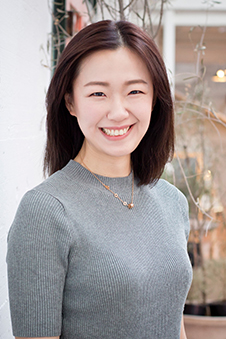We warmly welcome Dr Wendy Ip to the CHI team, as Laboratory Manager in the Omics Lab.
Trained in the Department of Physiology, The University of Melbourne, Australia, Wendy brings to the CHI more than 10 years of experience in experimental cardiovascular physiology research.
 Dr Wendy Ip
Dr Wendy Ip
She has a considerable background in the development of laboratory methods using both 'whole heart' and 'single cell' techniques, to gain insight into the mechanisms of heart disease development and progression.
Prior to joining the CHI, Wendy has successfully coordinated the use of CRISPR/Cas9 gene editing technology, and led a multi-disciplinary team to characterise the effect of these heart-specific gene deletions in laboratory systems.
If a recent grant application is successful, Wendy is hoping to develop new cutting-edge research technologies here in the CHI, using lab-grown human heart muscle cells that would allow researchers to examine functional effects of genetic modifications, an aspect of research that has been challenging to implement in human studies.
Furthermore, this platform has the potential to be combined with CRISPR/Cas9 gene editing technology, which would allow researchers to discern causal effects of genetic modifications. According to Wendy “the potential is unlimited”.
The Omics laboratory, led by Professor Vicky Cameron, focuses on investigating the influence of genomics and epigenetics in heart disease development and progression, and the association of genetic variation with clinical outcomes in New Zealand heart disease patients.
As the laboratory manager Wendy keeps the health and safety of scientists on track, maintains lab operation and ensures professional practices are adhered to. But her role is more than that.
“Patient study samples are incredibly valuable. One of my key responsibilities here is to make sure that the samples we collected from our study participants are handled and processed using the best clinical practice.”
Wendy is particularly skilled in working with challenging patient study samples. She has previously developed a protocol for obtaining high quality RNA from human atrial tissue specimens collected from cardiac surgery patients.
Currently she's working on optimising extraction method for another kind of challenging clinical sample type: blood samples collected as dried blood spots from neonates born 30 years ago. These samples are from a study of young adults who were born with a very low birth weight in 1986, and who have been followed up recently to study their current health and well-being.
With Wendy meticulously processing valuable clinical study samples and working on her plan to build a new research platform here at CHI, we can't wait to hear the next instalment of her story.
Find an Otago expert
Use our Media Expertise Database to find an Otago researcher for media comment.
